Do dogs get depressed like humans, or do they act gloomy as a part of their new tactic to get extra meat slice between meals? Whimsical behavior is hard-coded into the genetic nature of dogs. Nevertheless, sometimes there are reasons why your dog is acting volatile. Could depression be one of those reasons?
Table of Contents
Do Dogs Get Depressed?
The simple answer to your question is yes. This mental health disorder known has no discrimination against quadrupeds. If you have a Bulldog, Beagle, Collie, or a Poodle, it’s not much of a difference. After certain limits, your dog will lose its glamor, and you will have a new job; to fix things back to where they were before.
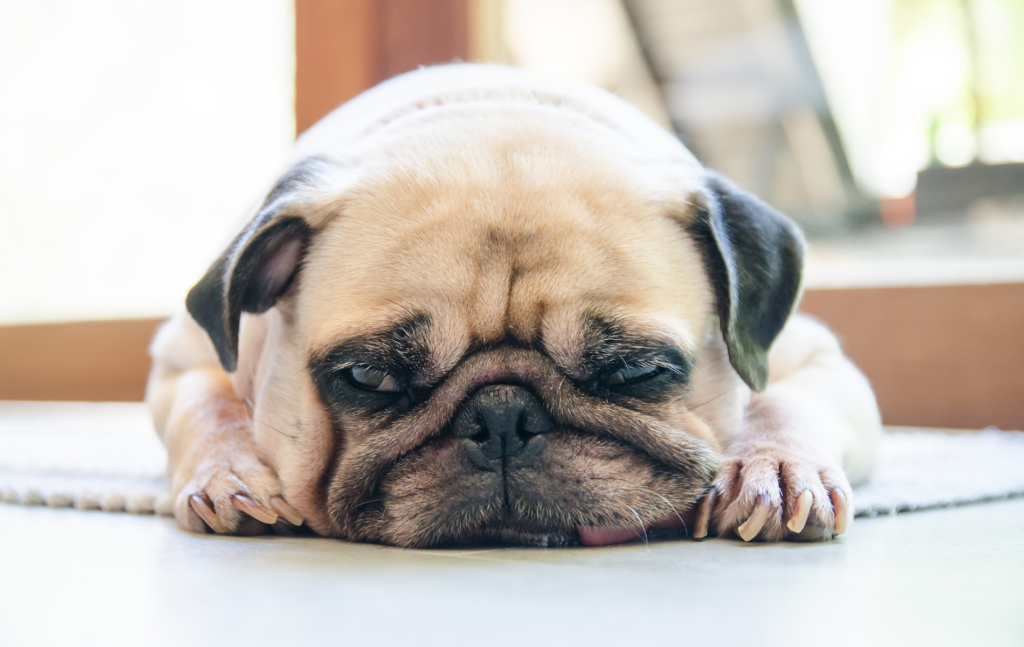
Why Do Dogs Get Depressed? 6 Main Reasons!
Although they sound brutal, dogs are sensitive creatures to the point that any minor environmental change could affect their well-being status and overall mood. There is no fixed reason for dogs’ depression, but these are the causes.
- Grief Over The Loss Of An Animal Companion
Grief is the most triggering cause of depression among those fluffy creatures. This animal companion could be another dog, your friend’s dog, for instance, or any other animal that your dog shares the previous history with. Your neighbor’s cat death might affect your dog if both animals used to spend some time together.
- New Baby Arrives At The Household!
A relationship between animals’ depression and babies’ arrival might sound wired at first. But the more you thought about it, the more you will discover that your dog is craving for regularity whenever possible.
Dogs like everything to be as it is now. And usually, they will treat your new baby as a threat to their systematic way of life.
- Change In The Members Of The Household
Canines greeting your new house member (your new wife, or your home-back nephew as an example) won’t differ greatly from the way they respond to babies’ arrival.
Dogs like to grow long-term bonds with the people they share one place with, And the appearance of unfamiliar faces in the environment often triggers undesired behaviors.
- Moving To A New House
Like their owners, adapting to a new environment doesn’t come risk-free. The next time you decide to move to a new area, you might take a minute first to discuss the matter with your dog. It is a change for both of you!
- Any Slight Change In The Daily Routine
Sticking to your comfort zone is not a human-only thing. Dogs respect their comfort zone, and they prefer that things stay change-free. Switching lunchtime one hour ahead might be enough change dog needs to go full-depression mode.
- Depression As A Sign Of An Illness
It’s called chronic depression. Depression is medically associated with numerous types of diseases ranging from mild ones to very severe ones. If your dog depression extended, then the wise thing to do is seek veterinarian help (more on that later).
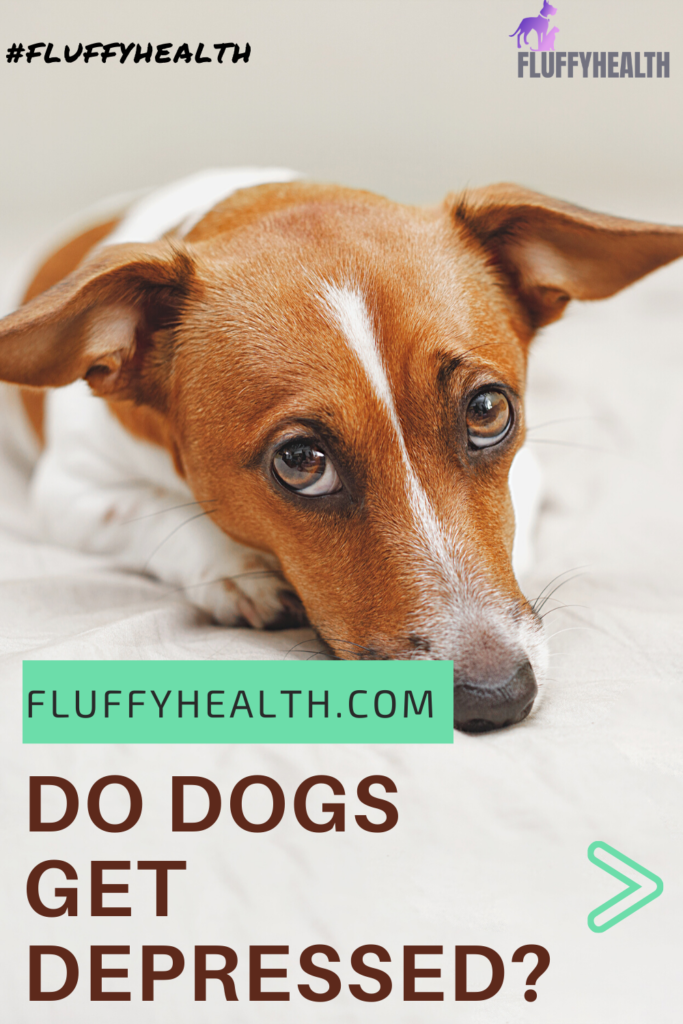
Genetics VS Environment: Which Is More Responsible For Your Dog Depression?
Genetics slip their noses in everything! Not only do they interfere with 80% of human behavior, but genetics also find their ways to alter canine behavior as well. But is genetics the game-changer when it comes to your dog’s depression?
The answer is yes! If your dog had it. Depression might be a lifelong conflict if it runs in your dog’s family. No environmental switches can change your dog’s hard-engineered condition, unlike environmental depression, that you can handle by making simple changes.
However, most of the time, your dog’s depression will be due to environmental changes. The reason is that the gene responsible for depression isn’t well-spread among dog species.
Which Dog Species Are More Susceptible To Depression?
If your canine is one of the following species, it’s more likely that he/she experience depression more often.
- Bichon Frise
- Border Collie
- German Shepherd
- Labrador Retriever
- Cocker Spaniels
- Basset Hounds
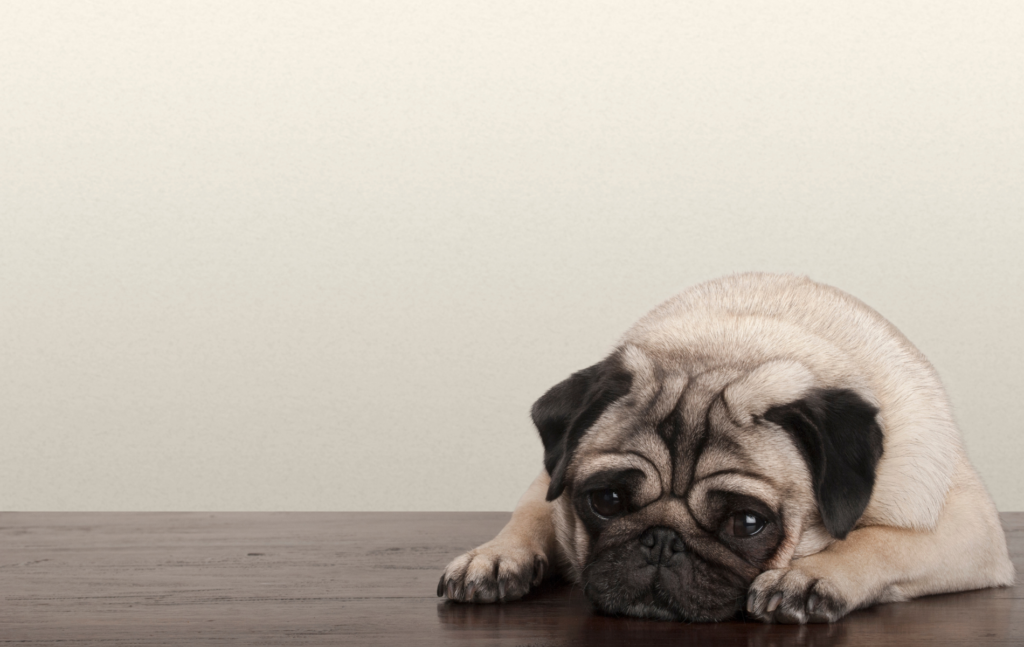
How Do I Know If My Pup Is Going Through A Depression Period?
How can you tell if your friend is depressed or not? You can detect your dog depression in the same way. Your dog’s appetite is the number one affected part. Your dog might eat less or more depending on its suitable way of handling depression.
Other symptoms might include sleeping more often, losing interest when you call him/her to play catch-the-ball or asking for a walk, or whatever that owner-dog special thing the two of you have.
When depressed, dogs often tend to hide or obviate interfering with you. If you noticed that your pup developed the habit of paw licking, it might be a good sign of depression.
How To Help Your Dog Bounce Back From Depression Period?
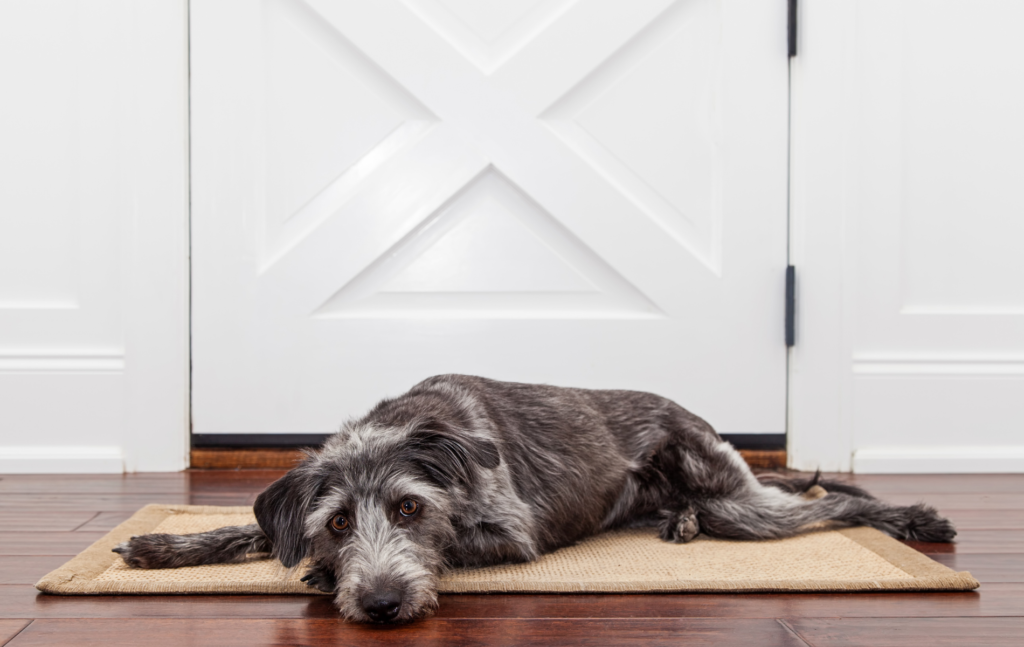
Dogs often self-treat themselves from depression within a few days to a few months. Nevertheless, boosting up your friend’s recovery process might require you to pay close attention and act when necessary.
Playing games can help a lot in healing depression. Other than that, you can encourage your pup to do exercise. You can also reward him/her with a snack from time to time.
There is no agreed-upon guidebook for handling canine depression. You should estimate the severity of the condition and try to offer the help you could if you think it can be home-handled. Otherwise, call the vet.
How To Medically Treat A Depressed Dog?
If your dog depression reached the veterinarian stage, your vet might provide some antidepressants that could ease the disease.
Antidepressants that works for dogs are the same that are used by humans. Your vet will mostly give your dog Prozac, Paxil, Zoloft, or Clomicalm.
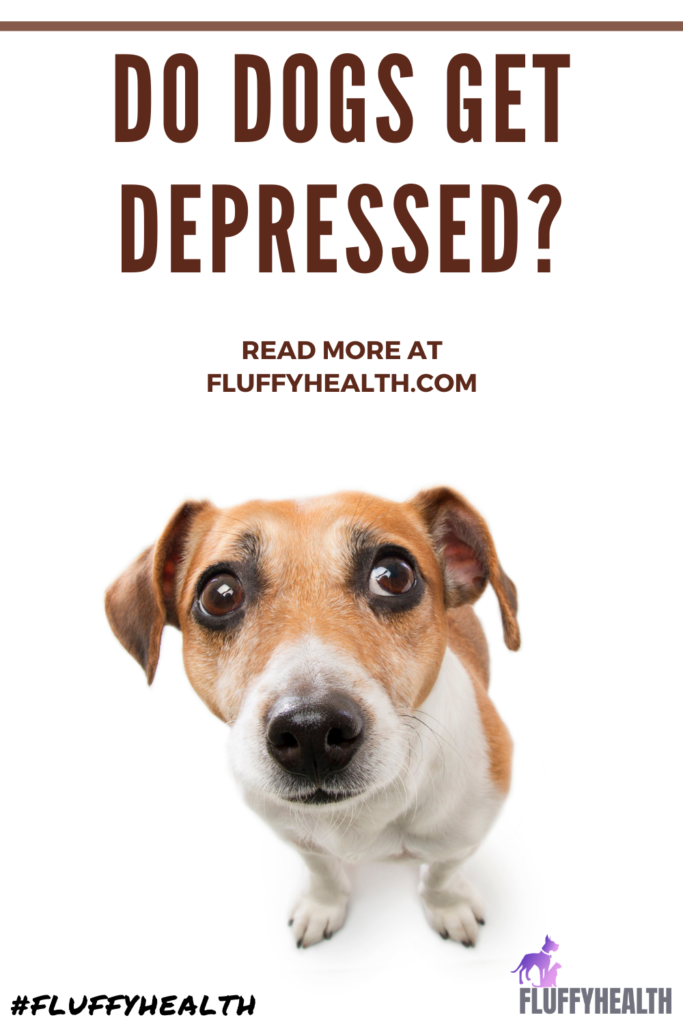
Long Term Depression In Dogs And How To Cope With It
Long term depression (or LTD) in dogs is rare. It mostly happens as a neurogenic response to traumatic life events. If your dog was a car accident survivor, this could be enough reason to trigger the disease. LTD can be treated medically by using the right medications.
Final Thought On Today’s Question, Do Dogs Get Depressed?
Do dogs get depressed? Yes, they do. Does that have to be dangerous? Not if you cope with it sympathetically. Handling depression the right way could tell what kind of pet parent you are. Bouncing back your dog from depression period shouldn’t take a lot of effort. You only need to have some mutual feelings with your pup and to act wisely according to your well-established knowledge about your pet.
If you have more information or a different answer to the question, do dogs get depressed, please write them down below in the comment section. So, every dog owner benefits from that.
You’ll Also Love These Posts:
Studies have shown if you like this blog article — you will also love the following posts.

